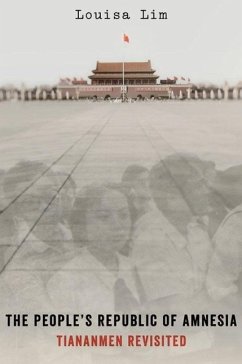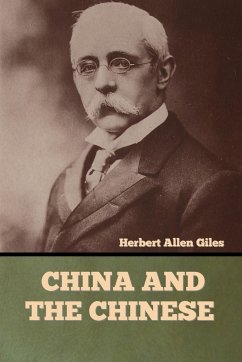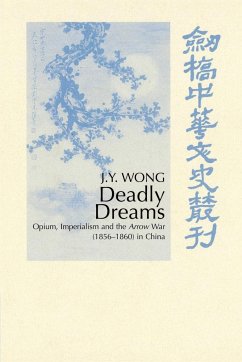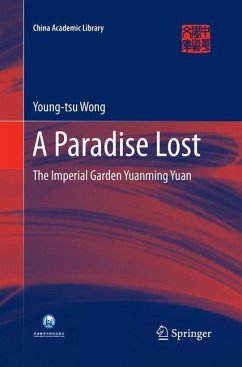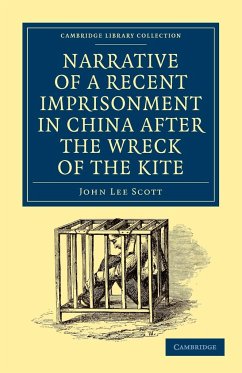
Sir Harry Parkes in China
Versandkostenfrei!
Versandfertig in 1-2 Wochen
28,99 €
inkl. MwSt.
Weitere Ausgaben:

PAYBACK Punkte
14 °P sammeln!
This book is volume one of two volumes. Preface. The events of the past year in China constitute a curious and melancholy commentary on half a century of diplomatic effort, enforced repeatedly by warlike arguments. In 1839 there was no foothold where a 'foreign devil' might stand in all China, and the war of 1840-2 was undertaken in order to obtain those elementary rights of fair treatment and personal security which merchants expect from every State. The Treaty of Nanking provided all this, on paper, and opened five ports to European trade; but the concession was grudgingly accorded in theory...
This book is volume one of two volumes. Preface. The events of the past year in China constitute a curious and melancholy commentary on half a century of diplomatic effort, enforced repeatedly by warlike arguments. In 1839 there was no foothold where a 'foreign devil' might stand in all China, and the war of 1840-2 was undertaken in order to obtain those elementary rights of fair treatment and personal security which merchants expect from every State. The Treaty of Nanking provided all this, on paper, and opened five ports to European trade; but the concession was grudgingly accorded in theory and as often as possible evaded in practice, and it was only the vigour and alertness of a few able consular officers that prevented the Treaty becoming wholly inoperative. Evasion and obstruction still from time to time frustrated their efforts, especially at Canton, and it was felt that, so long as the rights and liberties of foreigners at the Treaty ports depended upon the characters and caprices of mere local mandarins, there could be no uniformity of treatment and no security of justice. The wisest heads in Anglo-China agreed that until there was a Minister at Peking in touch with the Imperial Government there could be neither safety nor common tranquillity at the ports. The Second China War, with its sequel the Peiho Expedition of 1860, ended in the establishment of European Legations at the capital, and it was considered that the main difficulty of intercourse with China was at length surmounted. Forty years passed, during which the Plenipotentiaries gradually realised that the Board of Affairs at Peking was even less amenable to reason than the. local officials of the earlier system; and finally, in 1900, the foreign Legations found themselves besieged by a furious soldiery whose violence was not only unchecked but was evidently stimulated by the Imperial Government itself. For a month of suspense, which seemed an eternity of apprehension, it was almost believed that half a century of humanizing influence at the Chinese capital had been sealed by the blood of every European in Peking...........





